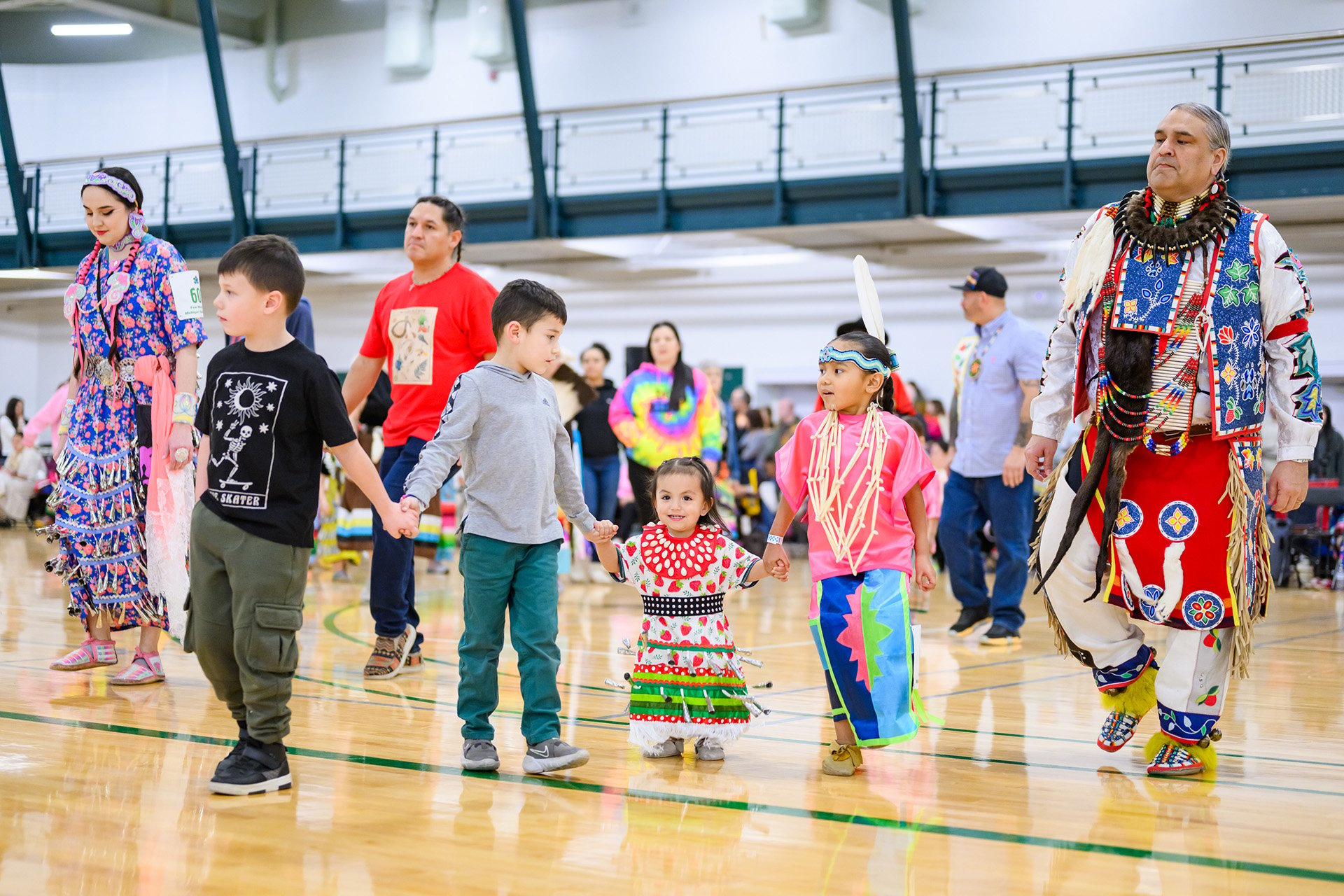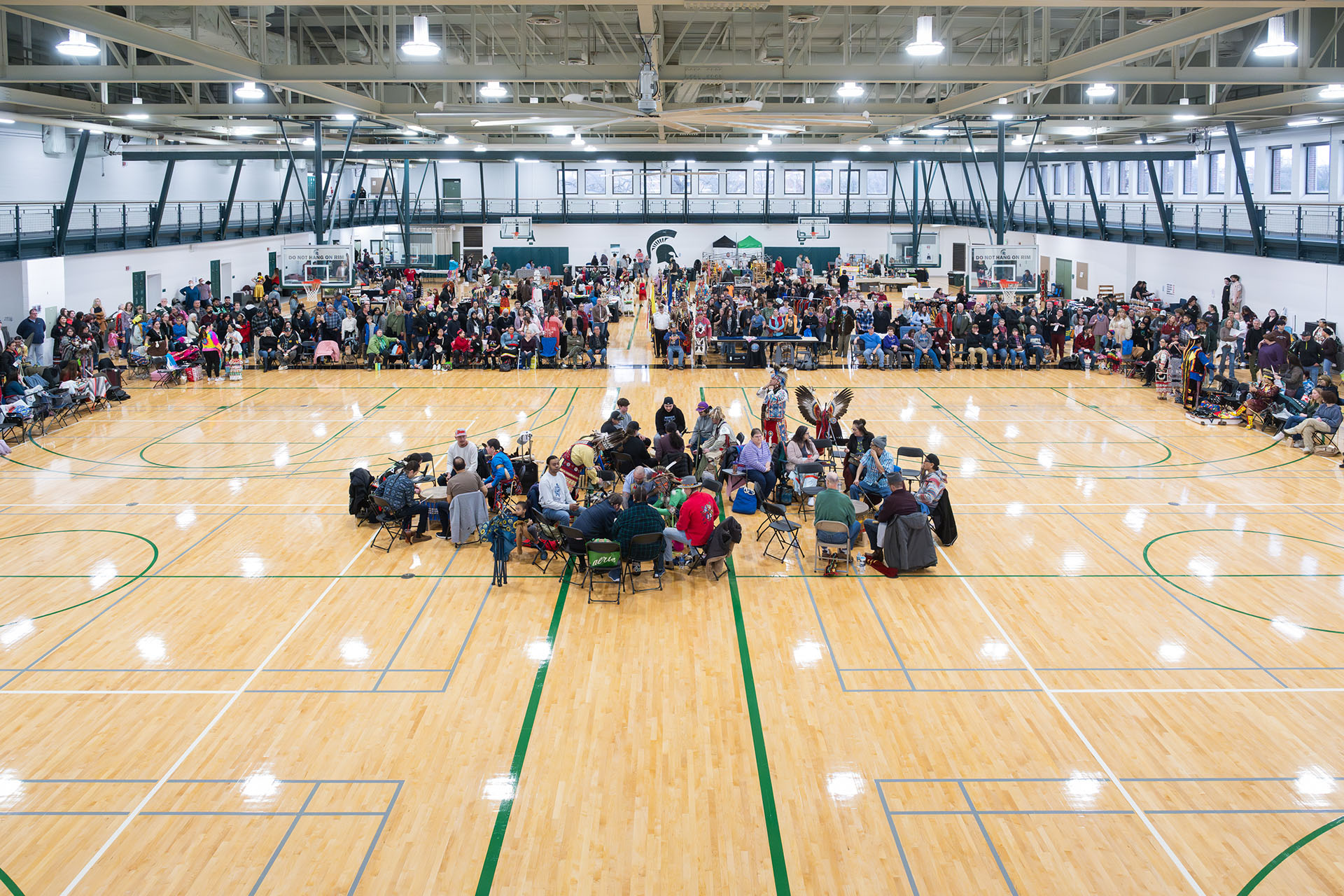The Powwow of Love is a time of excitement on MSU’s campus. The North American Indigenous Student Organization, or NAISO, takes pride in organizing the annual event and displaying diverse cultures and traditions. This year’s theme is “Passing the Torch: Weaving the Bonds Between 7 Generations.” The event will take place Feb. 22 at IM East at 10 a.m.
In preparation for the event, student co-chairs Carmen Cameron and Jo Troxell explain the amount of work involved in planning such a large event, the significance of a powwow and how people can get involved if it is their first time attending.

This year’s theme speaks to a culturally held belief “to think seven generations ahead in life and how your actions can affect the environment, community and future generations of children and grandchildren,” explains Cameron. Powwows hold significance because they are a generational practice where younger people can learn and carry on the traditions of elders.
According to Cameron, being able to celebrate powwows is a “revitalization of culture,” especially since it has only been 47 years since Native Americans were guaranteed the right to practice their traditional religions through the American Indian Religious Freedom Act.
This year will be Cameron’s third year as co-chair and Troxell’s first year as co-chair for the Powwow of Love. In addition to being co-chairs, Cameron and Troxell also hold executive board positions for NAISO.
According to the co-chairs, the Powwow of Love is the largest student-run event on campus and requires extensive time and effort to plan, especially as attendees and participants travel from all over the nation to attend. This year, one drum group is traveling all the way from Arizona. Despite the complexity of planning, both Cameron and Troxell say they enjoy organizing the powwow because it is a great way to build connections and be surrounded by community.
Powwows typically occur during the summer, but each Tribal community can decide when and how to celebrate. Powwows encompass and showcase myriad aspects of cultural practice and tradition through dancing, singing and the artistry of Indigenous vendors.
Planning for this year’s powwow prioritized recruiting people from diverse backgrounds to create an inclusive space for family and community building. Attendees can look forward to experiencing traditional dancing and singing, as well as viewing special exhibitions of the Fancy, Grass and Smoke dances. In years prior, dances were labeled as men’s or women’s dances. To be more inviting to all folks in attendance, dances now have more inclusive category labels of masculine or feminine categories.

While the committee members are committed to creating a space for Indigenous communities to come together and celebrate their culture, they also want the Powwow of Love to be a space that introduces Indigenous culture to non-Indigenous attendees. Brochures, which will be available at the event, are designed to help support those new to powwows in understanding the importance of respectful etiquette, such as refraining from touching regalia, taking photos without permission, and entering the dance and drum area without permission.
“If anyone wants to get involved and attend their first powwow, the MSU Powwow of Love is a good starting point because organizers expect non-Indigenous people to attend,” said Troxell.
The Powwow of Love is an inclusive space that recognizes different traditions and Indigenous communities. Cameron explains that it is important to “experience other people’s traditions because it helps you recognize different understandings.”
The Powwow of Love is open to everyone and provides a space for Indigenous expression and greater cultural understanding, bringing the community together through music, dance and tradition.